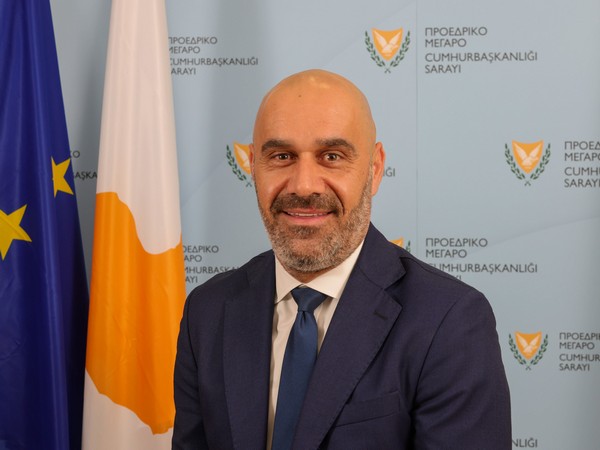Press Releases

17-05-2023 18:42
Opening Address by the Deputy Minister of Research, Innovation and Digital Policy, Mr Philippos Hadjizacharias at the Satellite-based Services for Disaster Risk Management Workshop
Dear Executive Director of EUSPA
Dear President of Eurisy
Distinguished guests,
Ladies and Gentlemen,
I am delighted to be joining you today, on this very special occasion and I would like to thank you all for your participation. A warm welcome to our guests from abroad, and congratulations to the organizers for this important undertaking, focused on Satellite-based Services for Disaster Risk Management, which are directly linked to a number of areas of interest of the EU Galileo, Copernicus and GOVSATCOM Systems.
In recent years, Europe faced the consequences of several natural hazards, resulting in human and economic losses. Extreme weather events due to climate change will only increase in the future. The rapid growth in the use of satellite applications has the potential to mitigate the impact of climate change and related hazards. Earth observations, Global Navigation Satellite Systems, and satellite communications all support crucial phases of disaster risk management, from prevention and preparedness to response and recovery.
Dear friends,
Investing in space means investing in the future. Space is considered a vital driver of innovation, growth and competitiveness, and a key enabler for accelerating the twin digital and green transition and advancing social prosperity. The huge amounts of information provided by earth observation satellite systems can be used in a variety of areas, and one of these is the Disaster Risk Management addressed today in this workshop.
As the 21st century gets further underway ladies and gentlemen, the space economy and the impact of space activities upon the welfare of humanity are growing and evolving. In fact, the space economy is one of the fastest growing sectors and, according to the Space Foundation, space activity is expected to grow to US$ 634 billion by 2026 from US$175 billion in 2005 and eventually become the first economy that will reach the 1 trillion US$.
In this new reality, Cyprus, although small in size, aims to be part of the space revolution, scaling up activities, advancing shared goals and paving the way for a sustainable and resilient future.
To this end, we have taken a number of steps, such as formulating our National Space Strategy and developing our national Space Law to authorize and supervise space activities. In addition, the Government supports the creation of a Space Business Incubation Center and a local Space Cluster, while also placing great emphasis on capacity building and space awareness activities.
Enhancing our cooperation with the European Space Agency (ESA) has been crucial to achieving our goals. In the context of the new Cooperation Agreement with ESA, we have increased our subscription to €2,6 million per year, to accelerate the capacity buildup of our industry, thus transitioning earlier to associate membership.
Attracting considerable investment, Cyprus has created a growing satellite network, capitalizing on its geostrategic location and aspiring to become a regional telecommunications hub. Our country developed a simple, flexible and competitive licensing model. As a result, we granted eight (8) authorizations resulting in three (3) satellites in operation. In addition, very recently, the EU Agency for the Space Programme (EUSPA) decided to deploy two (2) ground stations (called RIMS) in Cyprus for the operation of the EU EGNOS System, used to improve the performance of global navigation for aviation, maritime and land-based users.
Major developments in satellite infrastructure also include a receiving earth station, part of the Search and Rescue service of the EU Galileo System, for detecting and locating emergency beacons. It is worth mentioning that Cyprus is one of the only three hosting countries of such infrastructure in Europe. We are also working towards the establishment of an Optical Gateway, critical for connecting Cyprus to the rest of the European Quantum Communication Infrastructure (QCI) network.
In addition, we place great emphasis on earth observation, capitalizing on our climate, geographic location and national infrastructure and expertise, which allows us to develop innovative space technology services.
Ladies and gentlemen,
I truly believe that this conference is a great opportunity to exchange knowledge and expertise and explore opportunities for collaboration, so that together we can tackle in the most efficient way such disasters using space technologies and to create a common understanding among national and regional stakeholders of what satellite-based service can bring during the different phases of disaster risk management, and to facilitate the use of these services from a national to a European level.
Last but not least, I urge the Government agencies present here today, which are the frontline for the exploitation of space technologies, to benefit from their use in fulfilling their missions in a more efficient way and to offer a new range of quality services to citizens. For the above reasons, Government agencies must have an active role in this effort to promote and exploit space applications and act as a first customer of such services, in order to further develop as a space fairing nation, promote security to our citizens and fulfill our national goals.
Once again, thank you for honoring us with your presence and I wish you all productive deliberations.
(The address was read by the Director of the Department of Electronic Communications, Mr George Komodromos, on behalf of the Deputy Minister)
(MH)
Relevant Press Releases



10-07-2024 18:42
Cyprus is a ‘Strong Innovator’ for the third consecutive year



